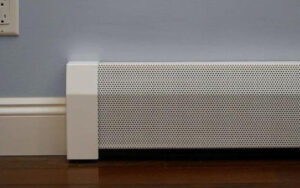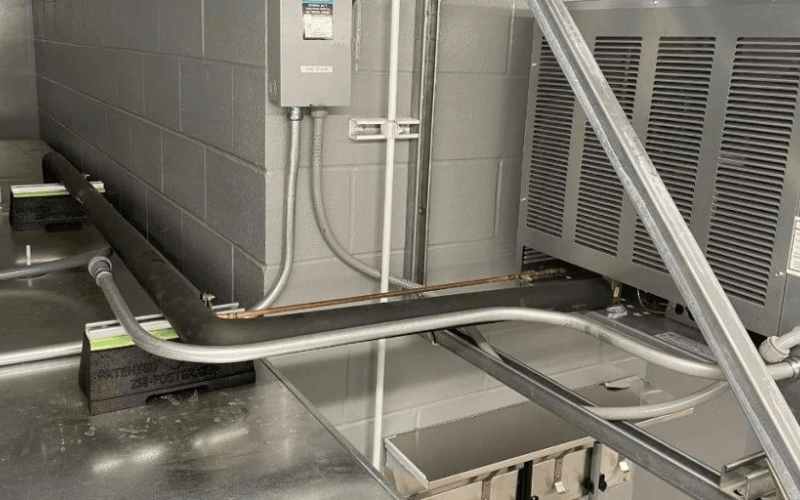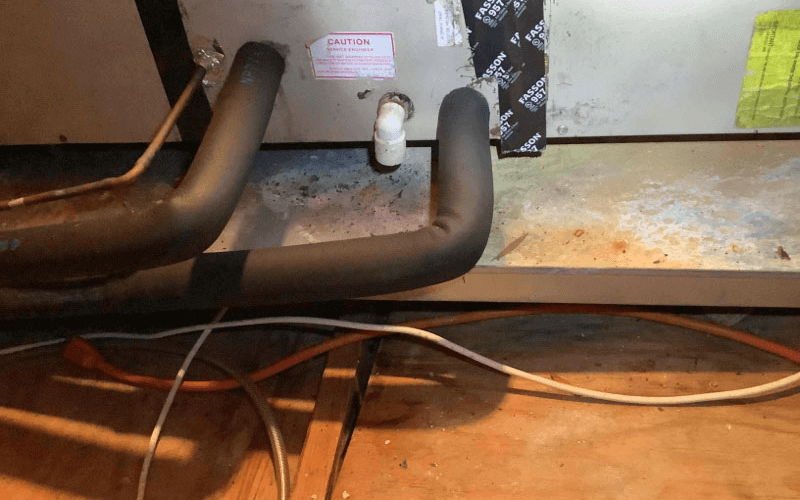Table of Contents
ToggleA hot shower in the morning or before bedtime is the ideal way to begin and end your day. You are forced to take a cold shower when the water heater fails. What is causing this issue? We conducted some research to find an answer to this question!
- Deposits on the tank’s bottom
- The indicator lamp is turned off
- The burner flickers instead of providing constant heat, possibly due to contamination or thermocouple problems
- A broken dip tube
A water heater can also cause the water to become too hot, discolored, smell bad, or even leak. This article will look at these issues and their potential causes and solutions. It also covers troubleshooting and resetting your water heater, life expectancy, and other topics. Continue reading to find out more!
Also check: Preparing for Winter? Choose The Best Electric Heaters for Your Home
Why Does Cold Water Work But Not Hot Water?
Water does not heat up for four common reasons.
First, dirt and minerals can collect at the bottom of the tank, near the burner. The water cannot be heated in this case because the deposits prevent the burner from heating the water by acting as insulation. This issue can be resolved by flushing out the sediment accumulated on the tank’s bottom. Second, the pilot light is turned off. There is a problem if you try to light it and it does not light up. The gas pressure could be low, or the gas valve could be shut. Other possibilities include air in the gas line or damaged thermocouples. If the pilot light does not light, the issue is with the burner.
On the other hand, the indicator light is illuminated but does not move. The thermocouple or gas valve next to the pilot light could be faulty. Contact a repair technician to replace damaged parts for these pilot issues.
Third, the burner flickers or does not produce a consistent flame. Dust can accumulate and clog the burner. The opening should be cleaned in this case.
A faulty thermocouple that needs to be replaced is another possibility.
Fourth, a dip tube directs cold water to the tank’s bottom to heat it. If the dip tube fails, cold water will enter the tank directly. The cold water is then combined with the hot water. You only get cold or lukewarm water. This problem can be resolved by replacing the fork tubes.
Why Is The Hot Water So Hot?
Water heaters have more problems than just providing cold water. The hot water that comes out is sometimes too hot. Reduce the temperature control setting to a lower setting. If the water is too hot after several hours, the temperature switch or safety valve may be faulty.
This switch keeps the water from boiling. The relief valve, on the other hand, allows steam to escape during heating. You may need to replace the switch if the reset does not work. Assume the valve is also faulty.
What Causes The Water To Be Cloudy Or Dirty?
Water can be rusted, either with or without dirt. The tank is made of metal and will rust over time. The grid can be a tank, anode rod, or pipe. If the tank is severely corroded, you should replace it. Scale and magnesium deposits may also be present in the tank. These, like sediments, can be brushed and rinsed away.
Why Does My Water Smell So Bad?
In water tanks and pipes, amoebas, bacteria, and fungi thrive. If left untreated, the water smell will worsen over time. These dangerous bacteria, according to the CDC, can also cause illness. Some are responsible for lung and skin infections. Temperature affects the growth of these bacteria. To kill, raise the temperature to 130-140 degrees Fahrenheit. Cleaning the tank with bleach can also be beneficial. The replaceable anode rod is another potential source of the odor.
Why Is The Heater Smelling Like Rotten Eggs?
The smell of rotten eggs in the air, unlike stinky water, indicates a gas or methane leak. Gas leaks in your home can be dangerous. Not only that, but it is harmful to the environment. A 2019 study found that 58 million gas water heaters in the United States emit 91,000 tonnes of methane into the atmosphere. Open all windows to allow air circulation if there is a leak. You should relight your pilot lights. Please keep in mind that accumulated gas can cause an explosion. You should contact a repairman or a gas company to resolve the issue, and while they do, it is best not to turn on any electrical switches. The spark can ignite the gas into combustion.
Why Is My Water Heater Making Sizzling Noises?
A faulty valve can cause leakage from the top. It can be tightened if it is loose to seal the leak. You can also replace it if it breaks. A leak in the tank’s bottom could be caused by deposit buildup and corrosion. Sealing or patching may not be effective. The tank may then need to be replaced.
Also check: Mr. Heater Vs. Reznor: Which Heater to Choose?
How Do I Reset My Gas Water Heater?
Most gas water heaters only require a pilot light reset.
- Wait 5 minutes after turning off the pilot light.
- Reduce the temperature and make sure the pilot dial is aligned with the pilot.
- Hold down the button until it clicks.
- Hold the ignition button down until the pilot ignites again.
- You can let go of the pilot control when the light turns on.
- Switch on the pilot light.
- Return and set the temperature you want.
A thermal reset switch is available on newer models. It may be labeled “Reset” on the thermostat. Some buttons may be hidden in the box, and you may need to unscrew the lid to access them. To restart, press the red button labeled “Reset.”
Know Why Is Your Gas Water Heater Not Heating, Working, And How To Fix It!
Like any other system, gas water heaters repair can develop issues over time. It is critical to comprehend how it works. Repair minor issues quickly and leave the major repairs to the professionals. Keep your heater well maintained if you want it to last a long time and save money.





















